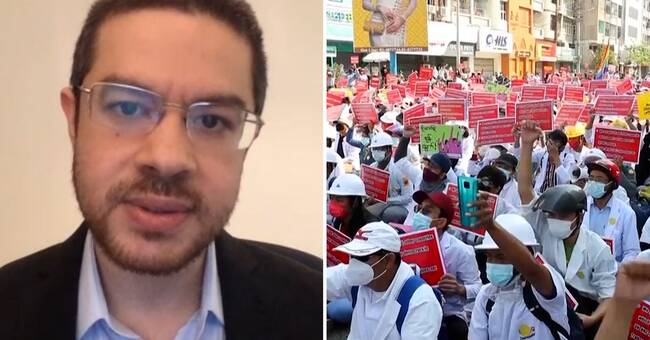Surveys from the London-based organization Netblocks show how the number of connected devices in Myanmar is plummeting towards the end of almost every day.
That is the effect of the military junta's decision to shut down the internet at night.
The traffic goes down as far as 10 percent of normal levels and then rises straight up again the next morning.
Myanmar is not the only country where internet blockers have been used to crack down on protests.
In the last two years, Netblocks has tracked blockades in over 30 countries, and the problem continues to grow.
- It has definitely become a tool for controlling populations.
We have tracked down more and more shutdowns every year.
Some last only a few hours, others for days or even weeks.
It is also obvious that they become more serious when it comes to how difficult people are affected and how long the blockades last, says Netblock's founder Alp Toker.
Consequences on many levels
Technically, the blockades are about everything from a cord being pulled out to advanced filter solutions to block certain websites or a certain type of traffic, but the consequences are often the same.
- If we look at what happened in Myanmar, we see that it first and foremost creates fear and confusion.
Misinformation is spread uncontrollably because the usual fact-checking systems do not work.
The mechanisms are collapsing, says Toker.
In addition to restricting freedom of expression and information, internet blocking is also a way of at least partially disrupting a population's infrastructure and economy.
For example, Netblocks has estimated that the internet blockade in connection with the protests in Belarus last summer may have cost Belarusian companies as much as $ 60 million - every day.
The calculations have been made by combining population data from the World Bank, ITU and Eurostat and then comparing them against the duration and extent of the blockade.
Operators are silenced
The question now is how this development can be stopped, and according to Alp Toker, consciousness itself can play a major role.
He describes how many internet operators are forced to shut down their operations against their will, while at the same time being silenced.
- Just telling about and documenting what happened has turned out to give the operators space to tell about what they were forced to do.
If it is already known what happened, they are more free to tell what they have received for orders, says Alp Toker.

